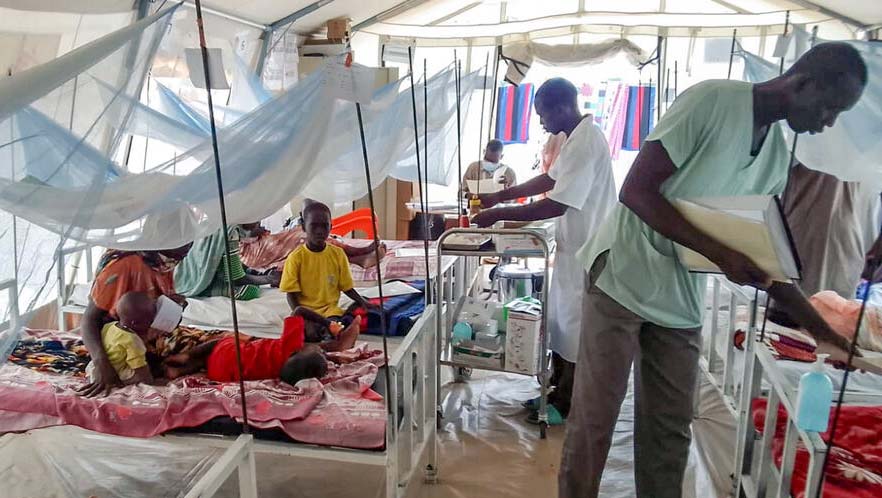Report: War could impact Sudan-Chad relations

Sudanese refugees in an MSF medical tent in Camp Ecole, Adré, in western Chad (Photo: MSF)
The war that broke out between the Sudanese Armed Forces (SAF) and the paramilitary Rapid Support Forces (RSF) in Sudan in April last year, could have far-reaching implications into the relationship between Sudan and Chad, that have both experienced dramatic political and other changes in the past years. Not only have thousands of Sudanese sought refuge in western Chad, but the neighbouring country has also become an essential corridor for humanitarian aid to Darfur, while allegedly also serving to supply the RSF.
A new report by Roland Marchal, Research Fellow at SciencesPo Centre de Recherches Internationales, entitled The Implications of the Current War for the Chad-Sudan Relationship, and published by the US-based Sudan Transparency and Policy Tracker two days ago, examines what the implications could be for both countries.
The report points out that the war in Sudan that started in Khartoum but reached Darfur in the following weeks had a nearly immediate impact on the border as many civilians crossed it to Chad, fearing bloody confrontations. This humanitarian dimension has become more critical with time since skirmishes and battles pushed tens of thousands of civilians to seek shelter in Chad.
Moreover, military developments in Darfur generated either a reluctant or enthusiastic identification with major Sudanese military players in sections of the Chadian population. The Zaghawa community at large and large sections of the military and security apparatus showed increasing concern about the consequences this fighting could have on their kin in Darfur.
Chadian Arabs, often divided in the internal political arena, felt more sympathy for the RSF, and increasingly, many who lived in Eastern Chad moved to seek employment in the Hemedti empire, which implies, in most cases, being recruited into his army.











 and then
and then